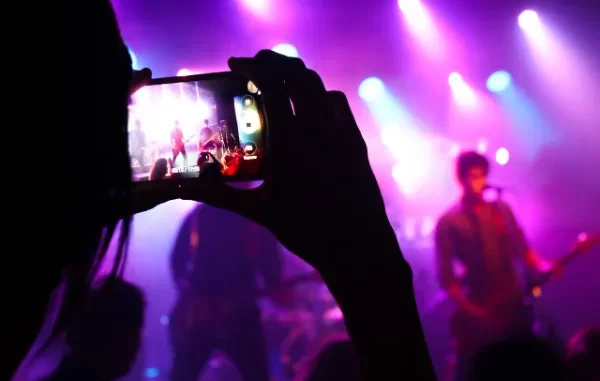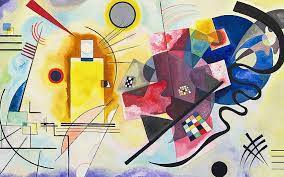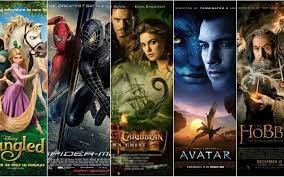
Entertainment is an integral part of human culture and has grown tremendously over the years. From the ancient history of fireplaces to the high-tech intricacies of today’s digital age, the world of entertainment offers a variety of experiences to cater to every taste and pleasure. In this detailed article, we will embark on a journey and continue to discover the hobbies that have enriched our lives.
What is Entertainment?
Entertainment is all about capturing our attention and interest. It can be something light and fun, like a comedy show or a video game, that makes us laugh and forget our worries for a while. But entertainment can also be more serious, like a historical drama or a thought-provoking documentary, that teaches us something new or makes us think about the world in a different way. No matter what form it takes, entertainment has the power to transport us, engage us, and leave us feeling happy, surprised, or even a little bit more informed.
The Difference Between Entertainment and Recreation
Entertainment and recreation are both important parts of a balanced life, but they’re not exactly the same thing. Entertainment is a passive leisure activity that helps us relax and unwind. It can be something light and fun, like watching a comedy show or playing a video game, or it can be more serious, like watching a historical drama or listening to a thought-provoking podcast.
Recreation, on the other hand, is an active leisure activity that helps us recharge and improve our physical and mental well-being. It can include things like playing sports, going for a hike, or spending time with friends and family.
Both entertainment and recreation are important for our overall health and happiness. Entertainment helps us relax and de-stress, while recreation helps us stay active and engaged. When we make time for both, we can feel more balanced and fulfilled.
Here are some additional thoughts on the difference between entertainment and recreation:
- Entertainment is often solitary, while recreation can be social or solitary.
- Entertainment is often focused on consuming something, while recreation is often focused on doing something.
- Entertainment can be mindless, while recreation can be stimulating.
Of course, there is some overlap between the two. For example, watching a sporting event can be both entertaining and recreational. But in general, entertainment is about passive enjoyment, while recreation is about active participation.
1. Visual and Performing Arts
a. Visual Arts

- Painting: From the masterpieces of Leonardo da Vinci’s “Mona Lisa” to the vibrant and abstract creations of modern artists, painting has been a source of visual pleasure and artistic expression for centuries.
- Design: Artists arrange materials into three-dimensional works of art, creating stunning sculptures and monuments that convey beauty, emotion, and historical significance.
- Photography: The art of capturing a moment in time through photography has revolutionized visual history, allowing us to glimpse the world through a photographer’s eyes.
- Digital Art: In the digital age, artists have used technology to create stunning digital masterpieces, pushing the boundaries of creativity and imagination.
b. Performing Arts

- Theater: Live stage performances, whether in classical or contemporary theater, offer a unique blend of storytelling, performance, and audience participation.
- Dance: Dance transcends culture and communicates emotions through graceful movement, rhythm, and expression. Ballet, hip-hop, salsa, and contemporary dance are a few examples.
- Music: Music is a universal language and comes in many forms, from classical bands and rock bands to electronic DJs and solo artists.
- Opera: Opera combines music, drama, and storytelling in a grand theatrical setting, often accompanied by orchestral performances.
2. Film and Television
a. Film

- Cinema: Cinemas offer a public experience to enjoy the latest blockbusters, independent films, and documentaries on the big screen.
- Streaming services: The rise of streaming platforms like Netflix, Amazon Prime, and Disney+ has changed the way we consume movies and TV shows, providing on-demand entertainment.
b. Television
- Broadcast TV: Traditional television stations broadcast a wide range of programming, from documentaries and sitcoms to reality shows and documentaries.
- Cable TV: Cable channels offer specials such as sports, lifestyle, and special interests, appealing to a diverse audience.
3. Literature and Written Arts
a. Books

- Fiction: Novels and short stories take readers into different worlds, introducing them to compelling characters and imaginative stories.
- Nonfiction: Books on history, science, self-help, and memory provide knowledge and insight into various aspects of life.
b. Poetry
- Poetry: Poets use words to evoke emotions and paint vivid images touching on themes of love, nature, society, and the human experience.
4. Gaming and Interactive Entertainment
a. Video Games

- Console and PC games: Players are immersed in a virtual world and experience epic adventures, tactical challenges, and interactive storytelling.
- Mobile gaming: Mobile apps offer seamless gaming, making it easier to entertain smartphones and tablets.
b. Board Games and Tabletop RPGs
- Board games: Traditional board games and card games provide opportunities for social interaction and creative thinking.
- Role-playing games (RPGs): Players take on fictional roles, exploring and adventuring in tabletop RPGs like Dungeons & Dragons.
5. Sports and Outdoor Activities
a. Sports

- Team sports like soccer, basketball, soccer, etc. bring fans together around the world and foster a sense of community and competition.
- Individual Sports: Tennis, golf, swimming, and athletics enable individuals to excel and compete on an individual level.
b. Outdoor Activities
- Hiking and Nature Exploration: Outdoor lovers searching for solace and journeying inside the high-quality outside, exploring country-wide parks, trekking trails, and natural wonders.
- Adventure Sports: Thrill-seekers interact in sports like rock climbing, whitewater rafting, and skydiving for an adrenaline rush.
Conclusion: Types of Entertainment
Entertainment is a vibrant tapestry of human creativity, offering experiences that match our interests and preferences. From visual and performing arts to books, films, and interactive games, the world of entertainment continues to evolve and appeal to global audiences. As technology advances and new forms of entertainment emerge, one thing remains constant: tension and emphasis in our lives. And the power of entertainment to bring happiness.






Leave a Reply